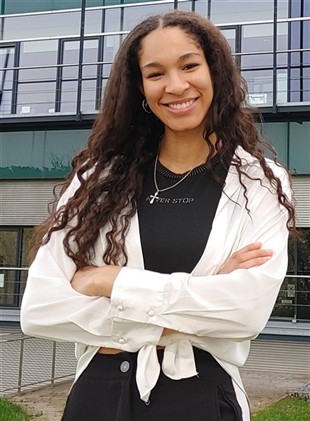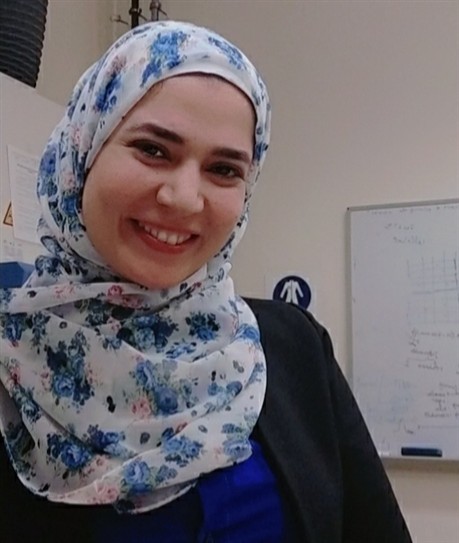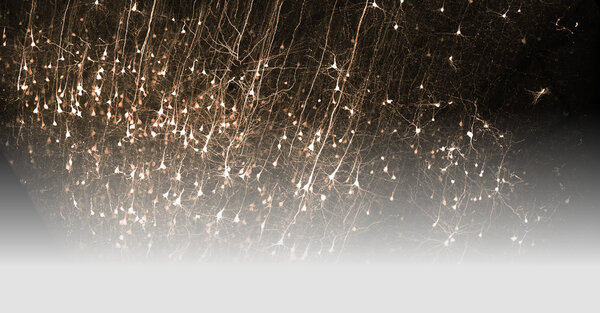
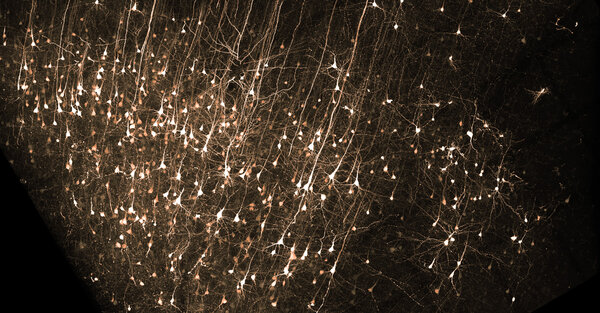
Our group is interested in developing new treatment options for patients affected by drug resistant seizures and associated encephalopathic syndromes.
About 30-50 % of all epilepsies are of genetic origin, while the remaining ones are mainly lesional, inflammatory or of unknown origin. Roughly 30 % of all cases are pharmacoresistant and a large proportion of patients are not amenable to surgical treatment.
Developmental and epileptic encephalopathies (DEEs) are genetically determined brain-wide disorders, which are considered one of the leading causes of pharmacoresistant epilepsy in children. DEEs delineate a spectrum of neurological syndromes with early childhood-onset of intractable seizures, neurodevelopmental delay or regression and clinical features of autism spectrum disorder. Notably, these latter symptoms can also arise independent of epileptic seizures. Standard anticonvulsant treatment has only limited impact on the course of disease and there are no established therapies available preventing the emergence of neurodevelopmental deficits.
In adults, drug resistant epilepsy is mostly associated with different types of structural alterations such as tumors, gliotic scars or hippocampal sclerosis. Additional pathologies include cortical architectural, cytological and migrational abnormalities (cortical dysplasias and periventricular gray matter heterotopias), which like DEEs also account for a significant proportion of pediatric cases with intractable epilepsy. Particularly when multilocular, bilateral or when localized in subcortical regions, eloquent areas of the CNS or when extending across multiple cortical gyri, surgical treatment becomes increasingly challenging or impossible.
Our work investigates the mechanistic underpinnings of DEEs on both neuronal network- and molecular levels, explores strategies for modulation of hyperexcitable states and seeks to derive new therapies for non-genetic focal epilepsy and DEE. Toward these goals we are employing a wide range of state-of-the-art electrophysiological, imaging and omics-based techniques. These approaches are complemented by analyses in neurosurgically resected CNS tissue to investigate the translatability of pathophysiological and therapeutic concepts to the human brain.

+49 (0)7071-
29-80440
Epileptogenesis of Dravet syndrome
These projects aim to deepen our pathophysiological understanding of Dravet Syndrome, a severe form of developmental and epileptic encephalopathy (DEE). Within the framework of the DFG Research Unit FOR-2715 and other DFG-funded project lines, we investigate the molecular and cellular mechanisms driving epileptogenesis and pursue the development of novel therapeutic strategies.
KCNQ2-DEE
Another form of developmental and epileptic encephalopathy (KCNQ2-DEE) is being investigated as part of a European Joint Programme on Rare Diseases (EJP RD) consortium, supported by funding from the Federal Ministry of Education and Research. The consortium aims to identify new therapeutic approaches through compound library screenings, drug repurposing, and the development of analogues of known KCNQ/KV7 channel modulators with improved efficacy and safety profiles. Within this context, we are elucidating the disease mechanisms underlying KCNQ2-DEE and evaluating the potential of newly devised compounds to modulate these pathogenic processes.
Human brain tissue as translational model system
In complementary projects, we employ human organotypic brain slice cultures and acute tissue samples as model systems to evaluate novel therapeutic approaches in a human neuronal context and to bridge translational gaps. Our experimental methodologies include patch-clamp electrophysiology, immunohistochemistry, and adeno-associated virus (AAV)-mediated transduction.
Selected publications
Rosa F, Theiss S, Krepp S, Loeffler H, Mendis DC, Klingenstein S, Liebau S, Weckhuysen S, Alber M, Petrou S, Lerche H, Maljevic S*, Wuttke TV*. KV7.2 channel dysfunction delays neuronal maturation and undermines early network development in a hiPSC model of KCNQ2-DEE. Neurobiol Dis 2025;216:107120.
Millevert C, Kan ASH, Hanke M, Koko M, Omidvar ME, Hedrich UBS, Wuttke TV, Barišić N, Lagae L, Aledo-Serrano Á, Niehoff EM, Platzer K, Zacher P, Polster T, Dilena R, Monfrini E, Geneviève D, Roubertie A, Bruel AL, Tran Mau-Them F, Dasouki M, Cohen S, Helbig I, Harrison AG, Colin E, Dubbs HA, Marsh ED, Lebon S, He N, Meng H, Chebib M, Møller RS, Marini C, Ahring PK, Lerche H, Weckhuysen S. The genetic and phenotypic spectrum of GABRB1-related disorders. Brain 2025 Jun 5:awaf213.
Nevelchuk S., Brawek B., Schwarz N., Valiente-Gabioud A., Wuttke TV, Kovalchuk Y., Koch H., Höllig A., Steiner F., Figarella K., Griesbeck O., Garaschuk O. Morphotype-specific calcium signaling in human microglia. J Neuroinflammation 2024;21(1):175
Layer N, Müller P, Ayash M, Pfeiffer F, Saile M, Klopfer F, Iavarone S, Santuy A, Fallier-Becker P, Hedrich UBS, Lerche H, Koch H, Wuttke TV. Axonopathy and altered synaptic development in early hippocampal epileptogenesis of Dravet syndrome. bioRxiv 2023, doi: https://doi.org/10.1101/2023.10.04.560735.
Bayraktar E, Liu Y, Sonnenberg L, Hedrich UBS, Sara Y, Eltokhi A, Lyu H, Lerche H, Wuttke TV*, Lauxmann S*. In vitro effects of eslicarbazepine (S-licarbazepine) as a potential precision therapy on SCN8A variants causing neuropsychiatric disorders. Br J Pharmacol 2023;180:1038-1055.
Layer N, Sonnenberg L, Pardo González E, Benda J, Hedrich UBS, Lerche H, Koch H, Wuttke TV. Dravet Variant SCN1AA1783V Impairs Interneuron Firing Predominantly by Altered Channel Activation. Front Cell Neurosci 2021;15:754530.
Schwarz N, Uysal B, Welzer M, Bahr JC, Layer N, Löffler H, Stanaitis K, Pa H, Weber YG, Hedrich UB, Honegger JB, Skodras A, Becker AJ, Wuttke TV*, Koch H*. Long-term adult human brain slice cultures as a model system to study human CNS circuitry and disease. Elife 2019;8:e48417.
Wuttke TV*, Markopoulos F*, Padmanabhan H, Wheeler AP, Murthy VN, Macklis JD. Developmentally primed cortical neurons maintain fidelity of differentiation and establish appropriate functional connectivity after transplantation. Nat Neurosci 2018;21:517-529.
Schwarz N, Hedrich UBS, Schwarz H, P A H, Dammeier N, Auffenberg E, Bedogni F, Honegger JB, Lerche H, Wuttke TV*, Koch H*. Human Cerebrospinal fluid promotes long-term neuronal viability and network function in human neocortical organotypic brain slice cultures. Sci Rep 2017;7:12249.
Møller RS*, Wuttke TV*, Helbig I, Marini C, Johannesen KM, Brilstra EH, Vaher U, Borggraefe I, Talvik I, Talvik T, Kluger G, Francois LL, Lesca G, de Bellescize J, Blichfeldt S, Chatron N, Holert N, Jacobs J, Swinkels M, Betzler C, Syrbe S, Nikanorova M, Myers CT, Larsen LHG, Vejzovic S, Pendziwiat M, von Spiczak S, Hopkins S, Dubbs H, Mang Y, Mukhin K, Holthausen H, van Gassen KL, Dahl HA, Tommerup N, Mefford HC, Rubboli G, Guerrini R, Lemke JR, Lerche H, Muhle H and Maljevic S. Mutations in GABRB3: From febrile seizures to epileptic encephalopathies.Neurology 2017;88:483-492.
Several collaborations have been established within the framework of the DFG Research Unit FOR-2715, the EJP RD Consortium TreatKCNQ, and the Chan Zuckerberg Initiative.
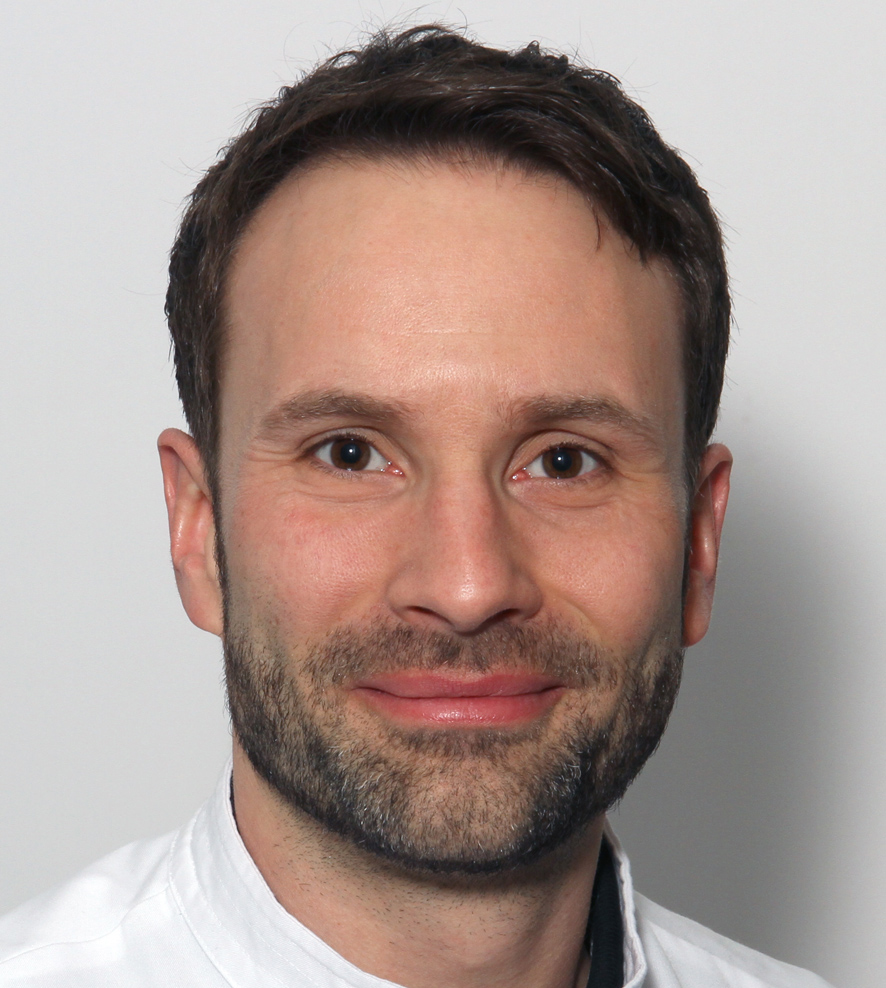
Hertie Center of Neurology
Hertie Institute for Clinical Brain Research
Department of Neurosurgery / Department Neurology and Epileptology
Otfried-Müller-Str. 27
72076 Tübingen
Phone: +49 (0)7071 29 81984
Fax: +49 (0)7071 29-4698



